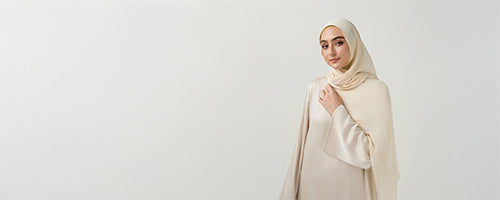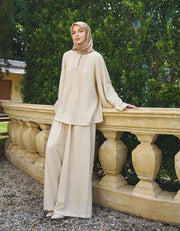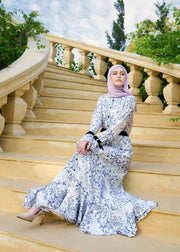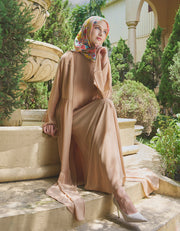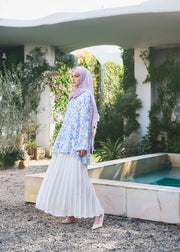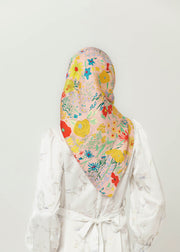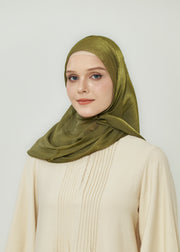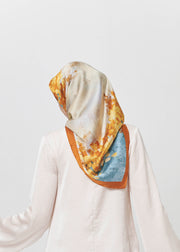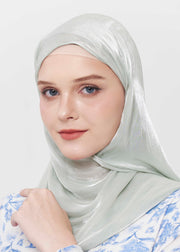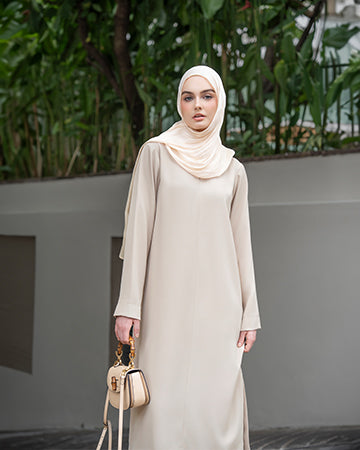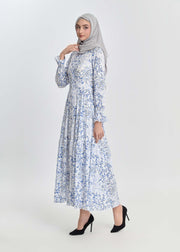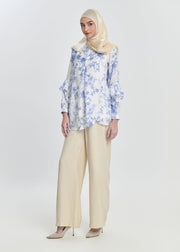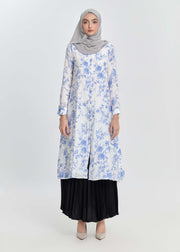Sustainable Muslim Fashion: Eco-Friendly Choices for Muslim Women
As the fashion industry faces increasing scrutiny over its environmental impact, many Muslim women are now asking: Can I dress modestly and still be sustainable? The answer is a resounding yes.
Sustainable Muslim fashion offers a meaningful way to honor both faith and the planet. In this guide, we’ll explore what it means, how to get started, and practical tips for building a modest, eco-conscious wardrobe.
What Is Sustainable Muslim Fashion?
Sustainable Muslim fashion refers to modest clothing that is designed, produced, and worn in ways that minimize harm to the environment and promote ethical practices.
This includes:
-
Using eco-friendly or recycled fabrics (like organic cotton, bamboo, and TENCEL™)
-
Ensuring fair wages and safe working conditions for garment workers
-
Creating garments that last and can be worn in multiple ways
-
Avoiding overconsumption by promoting capsule wardrobes and slow fashion
For Muslim women, this movement aligns beautifully with Islamic principles such as moderation (wasatiyyah), stewardship of the Earth (khalifah), and avoiding waste (israf).
What Is Sustainable Muslim Fashion?
The Impact of Sustainable Muslim Fashion on Faith and the Planet
Adopting sustainable Muslim fashion is more than a style choice—it’s a reflection of deeper spiritual and ethical values. For many Muslim women, dressing sustainably aligns with Islamic teachings on stewardship (khalifah), moderation (wasatiyyah), and avoiding waste (israf). It allows them to honor their faith while making responsible choices that benefit both people and the environment. By opting for clothing made from eco-friendly materials and supporting ethical brands, they reduce their carbon footprint and contribute to fair labor practices—particularly important in an industry where garment workers, often women, are underpaid and overworked. In this way, sustainable fashion becomes a quiet but powerful act of devotion, connecting personal identity with a global impact.
How to Identify Truly Sustainable Muslim Fashion Brands
With “sustainable” becoming a trendy term, greenwashing is common. Here’s how to evaluate whether a modest fashion brand is genuinely sustainable:
-
Materials Used: Look for certified organic fabrics, recycled materials, or low-impact dyes.
-
Transparency: Brands should clearly state where and how their clothes are made.
-
Certifications: GOTS, Fair Trade, OEKO-TEX®, and B Corp are good indicators.
-
Durability Over Trends: If a brand promotes timeless, versatile pieces instead of fast-changing trends, it's a good sign.
Many sustainable Muslim fashion brands also work with local artisans and small production batches, helping preserve traditional crafts and reduce overproduction.
Building a Capsule Wardrobe with Sustainable Muslim Fashion
One of the most practical approaches to sustainability is creating a capsule wardrobe—a minimal, thoughtful collection of clothing items that can be mixed and matched.
Tips for a modest capsule wardrobe:
-
Stick to a cohesive color palette (neutrals work well for layering)
-
Choose staple pieces: maxi dresses, wide-leg trousers, loose blouses, longline cardigans
-
Invest in 2–3 versatile hijabs in sustainable fabrics
-
Focus on layering items that transition across seasons
Capsule wardrobes encourage you to “buy less but better,” which is a core idea of sustainable Muslim fashion.
Top Sustainable Fabrics to Look For
Not all fabrics are created equal. For Muslim fashion—which often includes more fabric per outfit—choosing low-impact materials is key.
Here are fabrics that are ideal for modest and eco-conscious clothing:
-
Organic Cotton: Breathable, soft, and widely available
-
Bamboo Viscose: Moisture-wicking, antibacterial, and ideal for hijabs
-
Linen: Naturally textured, durable, and biodegradable
-
TENCEL™ (Lyocell): Silky, lightweight, and sourced from wood pulp
-
Recycled Polyester: Gives plastic waste a second life, used in many flowy garments
Choosing these materials ensures your wardrobe supports the principles of sustainable Muslim fashion from the ground up.
Shopping Tips: Making Smart, Sustainable Decisions
Being eco-conscious doesn’t mean you have to stop shopping altogether. It means making intentional purchases.
Here’s how:
-
Research before buying: Check the brand’s sustainability page and materials list
-
Buy for longevity: Ask yourself if you’ll wear it 30+ times
-
Opt for quality over quantity: A $70 abaya that lasts 5 years is better than five $20 ones that last a month
-
Support local or minority-owned businesses: Many Muslim-owned brands are deeply committed to ethical practices
-
Thrift and swap: Pre-loved fashion is inherently sustainable—and often more affordable
The goal is to shift your mindset from impulse buys to thoughtful choices that reflect your values and style.
Maintaining Your Sustainable Muslim Fashion Wardrobe
Extending the life of your clothing is one of the simplest ways to reduce your fashion footprint.
Tips to care for your garments sustainably:
-
Wash with cold water and air dry when possibl
-
Use mild, eco-friendly detergents
-
Mend tears or adjust sizes rather than discarding clothes
-
Store properly to avoid wear and tear
Islam teaches us to care for what we own, and that applies to our clothing, too. Mindful care extends the lifespan of every item in your wardrobe.
Sustainable Muslim Fashion and Minnaba: Where Ethics Meet Elegance
Looking for a place to begin—or elevate—your sustainable fashion journey?
Minnaba is your next step.
Minnaba offers a curated collection of sustainable Muslim fashion that blends timeless silhouettes, eco-friendly materials, and ethical craftsmanship. Every piece is designed with purpose: to empower Muslim women while protecting the planet.
With transparency in sourcing, fair wages for workers, and a strong focus on durability and modest elegance, Minnaba proves that you don’t have to choose between faith, fashion, and the environment.
Make your values visible—choose Minnaba.

